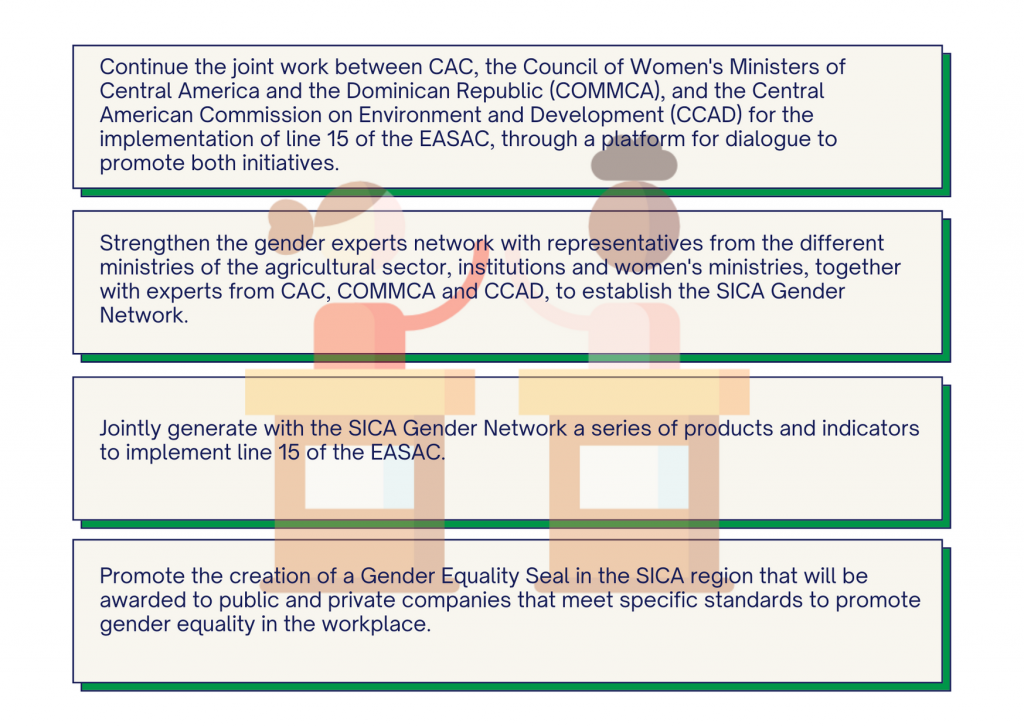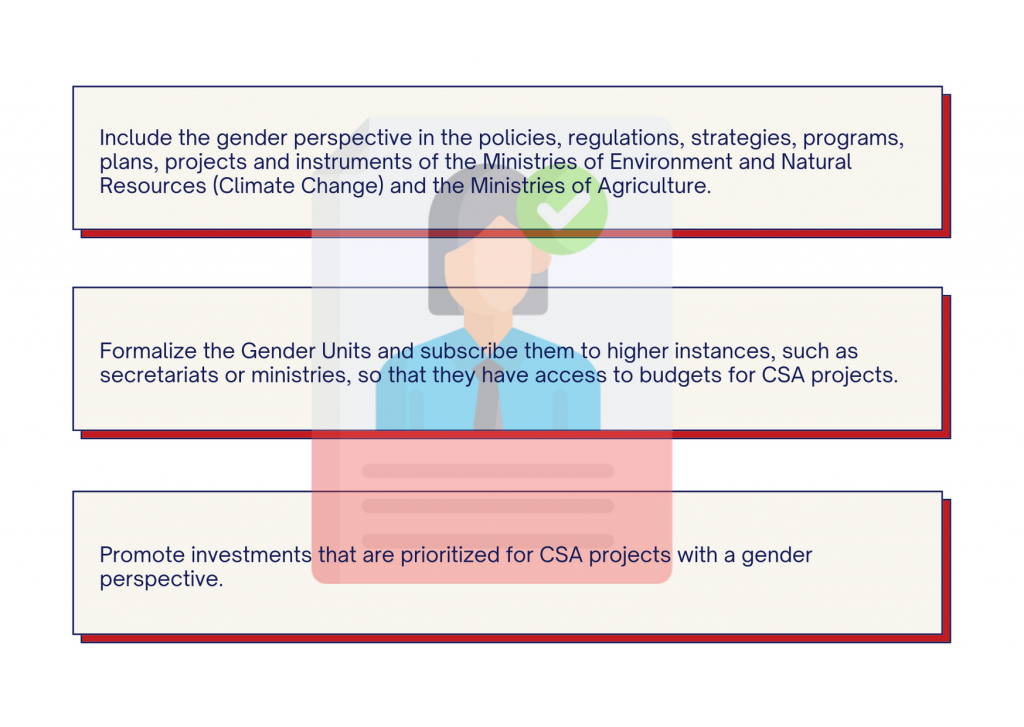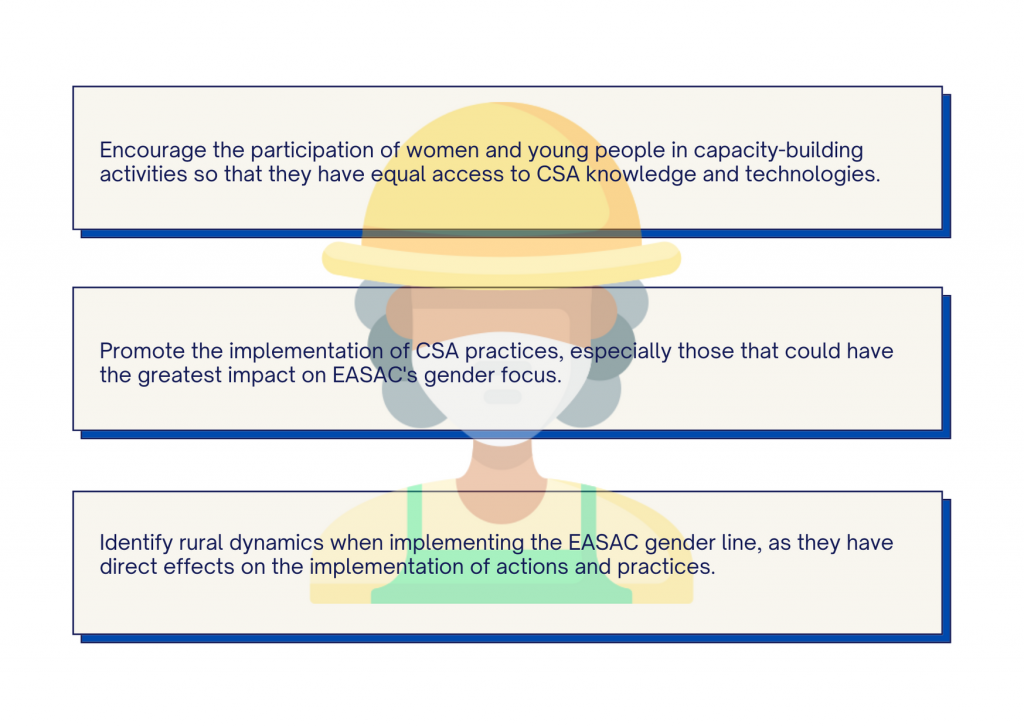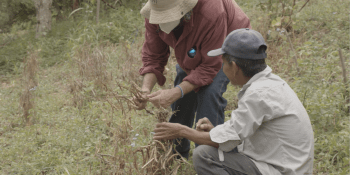A roadmap for gender equality in agriculture in Central America

Climate change is expected to increase the already existing gender inequalities experienced by rural women. Research has concluded that rural women face enormous barriers in accessing adaptation strategies. Due to gender and social norms, less access to information and financial limitations among other issues their capacity to respond to climate change is often given less attention. As a result, many adaptation initiatives do not take into account their knowledge, particular needs and specific roles in agricultural work.
Climate-smart agriculture (CSA) is an approach that can promote gender equality and women's empowerment in agriculture. It does so by taking into account the priorities and capacities of women and men when they adopt CSA practices. Combined, different CSA practices can benefit women in a specific context. Researchers must identify which practices have proved to advance the transformation of agriculture and rural development in a way that promotes gender equality.
Recognizing that gender equality and the empowerment of rural women is vital for building a sustainable future and more resilient food systems, the Climate-Smart Agricultural Strategy (EASAC) for the Central American Integration System (SICA) region included a proposal for the facilitation of mechanisms that integrate the principle of gender equality and equity, as well as promote the intergenerational approach and social inclusion in CSA actions. To ensure the implementation of this strategic line, the CGIAR Research Program on Climate Change, Agriculture and Food Security (CCAFS) and the Central American Agricultural Council (CAC) prepared a document defining a series of actions that have taken into account the geographic, agroecological and social characteristics of women and young people in the SICA territory.
Actions to implement the gender perspective of the EASAC
There are two actions that should be implemented at all levels: the first is to generate training and debates on the gender perspective at the institutional, national, and regional levels. The second is to promote the gender approach with an emphasis on equality, freedom, productivity, education, health, etc.
From there, the following actions at the regional level arise:

At the national level, actions are aimed at the ministries, institutions of the agricultural, environmental, and gender sectors, to strengthen networks that allow coordinated work for the implementation of strategic line 15:

At the community level, the actions are aimed at officials working on the implementation of the strategic line in rural communities:

Looking to the future
Recognizing the role of women and youth in the agricultural sector and in climate change adaptation is necessary to reduce the gender gap in agriculture and implement innovations to build a resilient and inclusive agricultural sector. Access to resources and information, participatory spaces for household and community decision-making, and reduction of vulnerabilities of women and youth should be studied to improve the adaptation of the agricultural sector in the SICA region.
CAC hopes that the proposed actions will help to achieve gender inclusion in agricultural productivity, recognizing the key role that rural women play in the sector and in CSA's development, and that this goal must have the commitment and support of all the countries in the region. They also seek to promote greater capacity building on gender inclusion and its linkage with the agricultural production sector. Finally, "we seek greater empowerment of women farmers and access to technical, administrative and financial assistance for the organization of production and marketing of their initiatives in the development of sustainable agriculture," according to CAC.
Our contribution is to generate scientific inputs and evidence to help women and youth play an active role in promoting sustainable and climate-smart agriculture. The roadmap for the implementation of the EASAC strategic axis, which we have generated jointly with the CAC, establishes actions to enable the empowerment of youth and women."
Deissy Martínez Barón, Regional Director for CCAFS Latin America



